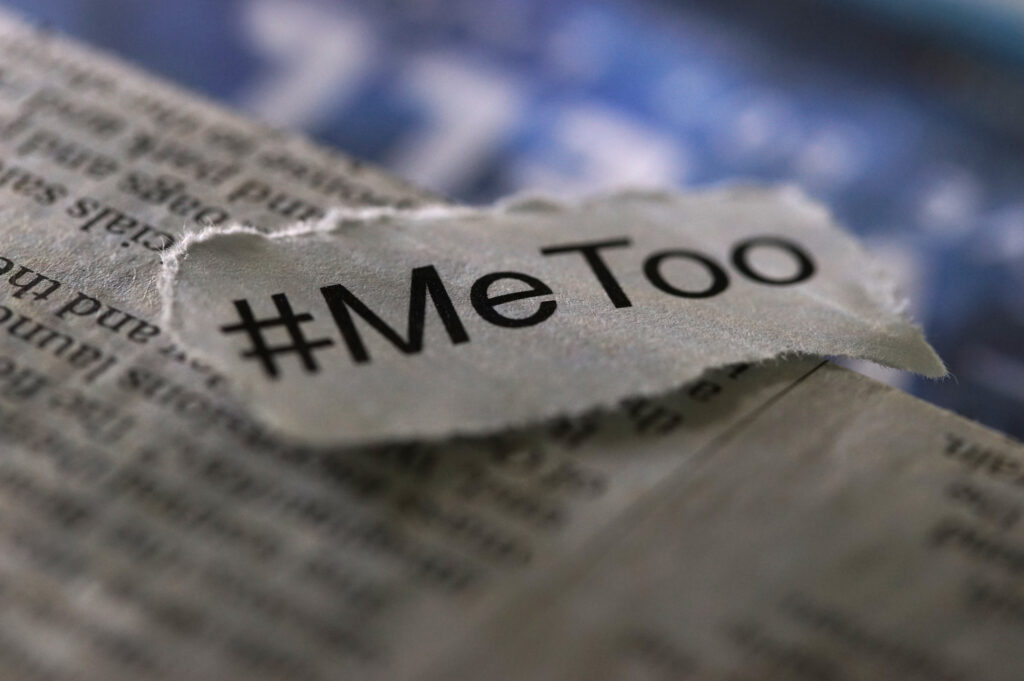
HR Working Overtime in Response to the #MeToo Movement
In the midst of the Harvey Weinstein scandal, in October of 2017, actress Alyssa Milano took to Twitter and encouraged any woman who had been sexually harassed to tweet “Me Too” to bring awareness to the prevalence of sexual harassment both in and outside of the workplace. Hours later, the hashtag #MeToo trended across every social media outlet as thousands of sexual harassment victims began sharing their stories, struggles, and testimonies. While the #MeToo movement started in 2006 through the efforts of civil rights activist Tarana Burke, Alyssa Milano’s tweet led to its explosive expansion. Perhaps inevitably, as the movement expanded, so did the number of people who expressed their disappointment and distrust in human resource professionals’ efforts to address these concerns.
Various media outlets and blogs shared posts of individuals who accused HR of failing to fully address and investigate complaints or to provide effective reporting mechanisms. Some victims even accused HR representatives of covering up for harassers. In response to the concerns that have been expressed by victims of sexual harassment in the workplace, and in recognition of the value inherent in establishing best practices in that regard, HR departments are working overtime to regain trust and to improve the infrastructure, policies, and training procedures offered by employers. While some HR professionals have been successful in implementing more effective ways to address sexual harassment incidents, others confess they do not know where to begin and are seeking guidance on what they should be doing to strengthen and improve the functionality of the workplaces for which they are responsible. With that imperative in mind, the following are suggestions for addressing these concerns.
Update Policies and Training Materials
Believe it or not, many individuals know very little about sexual harassment or what to do if they were to experience it. For these reasons, it is essential that HR professionals update and strengthen their policies and training materials so that employees are appropriately informed. Specifically, HR professionals should offer company-wide training to ensure that every employee knows how to file a report, respond to an incident, or intervene if they were to witness a co-worker being sexually harassed. Training can be a very effective way to prevent sexual harassment incidents from going unreported and unresolved. Outside contractors and employment specialists are readily available to facilitate such training, as well as perform workplace culture audits and educate employees about sexual orientation, gender identity, and diversity and inclusion, all of which have been proven to decrease acts of sexual harassment. It is also important for employers and HR professionals to ensure that their policies clearly define what sexual harassment includes while addressing all of the behaviors that constitute sexual harassment.
Provide More Reporting Mechanisms
One of the main reasons why sexual harassment incidents go unreported is because employees are afraid they will be retaliated against if they register a report with HR or with one of their supervisors. Therefore, it is vital to ensure that alternative reporting mechanisms are provided to address this issue. Implementing a sexual harassment hotline, live chat, workplace harassment resource page, or private online reporting forum that allows employees to anonymously or indirectly report an incident are great alternatives to the traditional in-person reporting system. Implementing an online, telephone, or other indirect reporting systems can make employees feel more comfortable about reporting sexual harassment incidents. It is also crucial to provide each employee with a copy of the internal reporting procedure and a list of each person to contact within the company should they decide to report the incident directly.
Improve Investigation Procedures and Encourage Harassment Investigation Training
While sexual harassment training opportunities are suggested for employees, harassment investigations training for HR professionals is critical. What may seem like a thorough investigation may only scratch the surface if HR professionals aren’t asking appropriate questions or speaking to the right people. Common investigation mistakes include failing to plan, failing to note findings, failing to follow up with the parties involved, failing to draw a conclusion, inadequately responding to complaints, and neglecting the creation of an investigation strategy. It is critical for HR managers to communicate with employment attorneys and specialists to develop consistent, thorough, and effective investigation procedures and training materials that serve to minimize these errors. Taking the time to carefully plan out who will investigate the incident, what will be investigated, the evidence needed to complete the investigation, and who will be investigated can make all the difference between a poorly conducted investigation and a thorough one.
The implementation of these recommendations serves the additional purpose of demonstrating to federal and state agencies that the employer takes such matters seriously and has designed an effective and coordinated response. Such practices go a long way in demonstrating an employer’s good faith and best practices in the event claims of sexual harassment are reported.
Many thanks to law clerk Tatyana Bailey for her valuable input in researching and drafting this article. If you have questions about this issue or other employment-related issues, please contact Connie Carrigan at ccarrigan@smithdebnamlaw.com.

